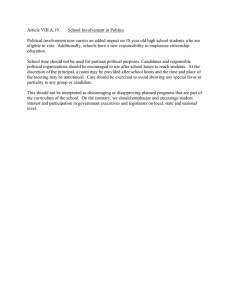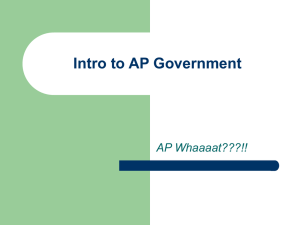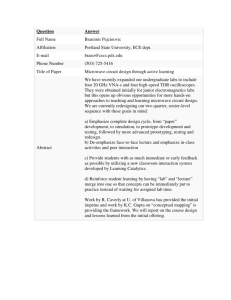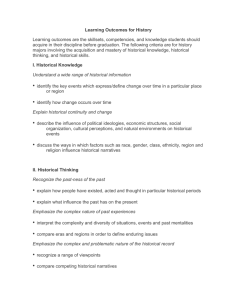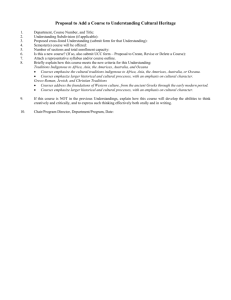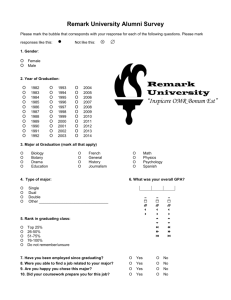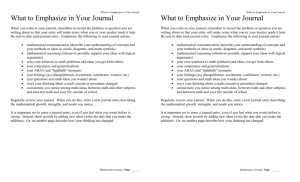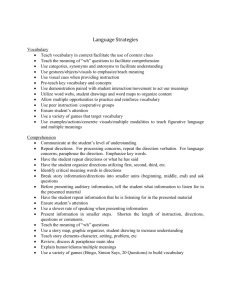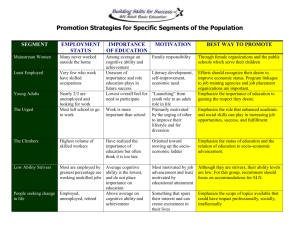Teaching Philosophy Inventory
advertisement
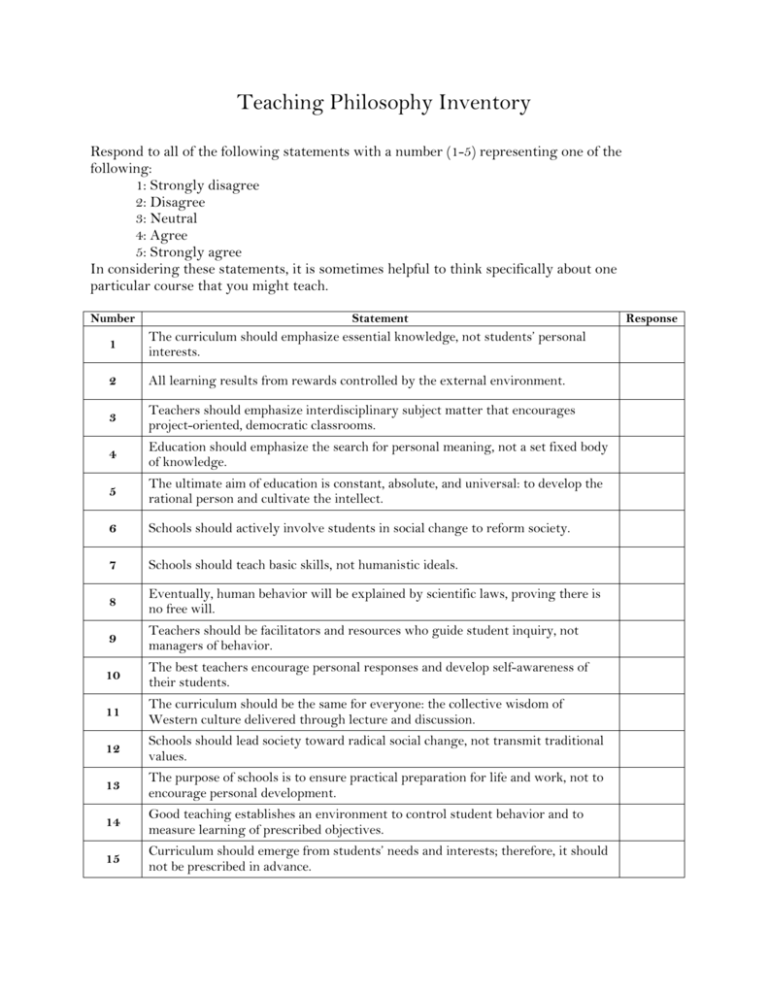
Teaching Philosophy Inventory Respond to all of the following statements with a number (1-5) representing one of the following: 1: Strongly disagree 2: Disagree 3: Neutral 4: Agree 5: Strongly agree In considering these statements, it is sometimes helpful to think specifically about one particular course that you might teach. Number Statement 1 The curriculum should emphasize essential knowledge, not students’ personal interests. 2 All learning results from rewards controlled by the external environment. 3 Teachers should emphasize interdisciplinary subject matter that encourages project-oriented, democratic classrooms. 4 Education should emphasize the search for personal meaning, not a set fixed body of knowledge. 5 The ultimate aim of education is constant, absolute, and universal: to develop the rational person and cultivate the intellect. 6 Schools should actively involve students in social change to reform society. 7 Schools should teach basic skills, not humanistic ideals. 8 Eventually, human behavior will be explained by scientific laws, proving there is no free will. 9 Teachers should be facilitators and resources who guide student inquiry, not managers of behavior. 10 The best teachers encourage personal responses and develop self-awareness of their students. 11 The curriculum should be the same for everyone: the collective wisdom of Western culture delivered through lecture and discussion. 12 Schools should lead society toward radical social change, not transmit traditional values. 13 The purpose of schools is to ensure practical preparation for life and work, not to encourage personal development. 14 Good teaching establishes an environment to control student behavior and to measure learning of prescribed objectives. 15 Curriculum should emerge from students’ needs and interests; therefore, it should not be prescribed in advance. Response 16 Helping students develop personal values is more important than transmitting traditional values. 17 The best education consists primarily of exposure to great works in the humanities. 18 It is more important for teachers to involve students in activities to criticize and transform society than to teach the Great Books. 19 Schools should emphasize discipline, hard work, and respect for authority, not encourage free choice. 20 Human learning can be controlled: Anyone can be taught to be a scientist or a thief; therefore, personal choice is a myth. 21 Education should enhance personal growth through problem solving in the present, not emphasize preparation for a distant future. 22 Because we are born with an unformed personality, personal growth should be the focus of education. 23 Human nature is constant–its most distinctive quality is the ability to reason; therefore, the intellect should be the focus of education. 24 Schools perpetuate racism and sexism camouflaged as traditional values. 25 Teachers should efficiently transmit a common core of knowledge, not experiment with curriculum. 26 Teaching is primarily management of student behavior to achieve the teacher’s objectives. 27 Education should involve students in democratic activities and reflective thinking. 28 Students should have significant involvement in choosing what and how they learn. 29 Teachers should promote the permanency of the classics. 30 Learning should lead students to involvement in social reform. 31 On the whole, school should and must indoctrinate students with traditional values. 32 If ideas cannot be proved by science, they should be ignored as superstition and nonsense. 33 The major goal for teachers is to create an environment where students can learn on their own by guided reflection on their experiences. 34 Teachers should create opportunities for students to make personal choices, not shape their behavior. 35 The aim of education should be the same in every age and society, not differ from teacher to teacher. 36 Education should lead society toward social betterment, not continue itself to essential skills.
